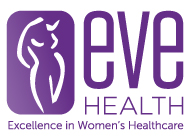Are you pregnant this Christmas, and unsure of what foods you can and can’t eat?
While it will be important you follow food safety guidelines to protect yourself and your unborn baby from food-borne infections, there are still plenty of delicious foods deemed safe, provided they have been cooked and prepared properly.
Lamb, roast turkey, vegetables, fresh salads, and desserts are among them – so enjoy!
Unfortunately, ham is not recommended unless thoroughly cooked to at least 75°C and eaten soon afterwards. We would also advise avoiding prawns, shellfish, and other uncooked seafood.
Here is some more advice for Christmas lunch:
Reason for guidelines
There are two main reasons to be vigilant about food safety when pregnant:
- Pregnant women are more susceptible to foodborne illness, as the immune system in pregnancy is suppressed.
- Food-borne illnesses, caused by the bacterium Listeria monocytogenes, can infect your unborn baby, leading to complications like stillbirth or pre-term labour. As a precaution, pregnant women are advised to avoid specific foods more likely to contain Listeria bacteria such as soft cheeses, unpasteurised dairy, cold seafood, sandwich meats, pate, packaged salads and bean sprouts.
Food preparation
Proper preparation and storage are key to food safety. Food poisoning is more likely if food is not fresh, is not washed, cooked to the right temperature, or is left out of storage for too long.
Food preparation tips:
- Always check a food items’ use-by date.
- Follow cooking and handling instructions.
- Buy a food thermometer. It is even a good investment to have after pregnancy.
The dos and don’ts:
- Nibbles platters. Avoid pre-cut, pre-packaged fruit; soft and blue cheeses; pate; and processed meats. Safer options: Crackers; nuts; hard cheeses; freshly washed whole fruits and vegetables.
- Avoid anything raw and anything that has been pre-cooked and served cold such as oysters, cold prawns, sushi, and smoked salmon. High mercury fish to avoid includes catfish, orange roughy/deep sea perch, shark/flake, marlin, broadbill, swordfish and marlin. Safer: Freshly well-cooked fish served straight away.
- Meats and poultry. Turkey, chicken, beef and pork are fine provided they’ve been cooked to the right temperature and eaten hot.
- Accompaniments: Salad greens and vegetables should be freshly prepared (not pre-made or pre-packaged) and washed right before chopping. Avoid eating bean sprouts, and stuffing if it has been cooked inside the bird.
- Dairy: Stay clear of unpasteurized dairy products as they are one of the main culprits of Listeria. Fortunately, most dairy products, including milk and hard cheeses, are pasteurized. Just check first.
- Eggs: Home-made raw egg-containing products (think dressings, sauces, desserts like custards, mayonnaise, aioli uncooked meringue and ice-cream) have a risk of carrying salmonella, so this is probably the only time where store-bought shelf items are better. The ones that come of the shelf, and not the refrigerator, are treated to avoid salmonella.
- Desserts: Along with the advice mentioned above in “dairy”, “eggs” and “nibbles platters”, watch out for desserts soaked in alcohol.
- Leftovers: Eating left-overs is generally risky business for pregnant women. Avoid eating food that has been made more than 24 hours ago, and if you eat food from the day before ensure it is steaming hot first. Queensland Health advised it is safe to eat foods listed as higher risk provided they are heated to more than 74°C for more than two minutes.
For more information visit about safe eating in pregnancy visit, Queensland Health’s guidelines.
Sources:
Related reading:
- Food Standards Australia New Zealand (Pregnancy and healthy eating article)
Comments are closed.
